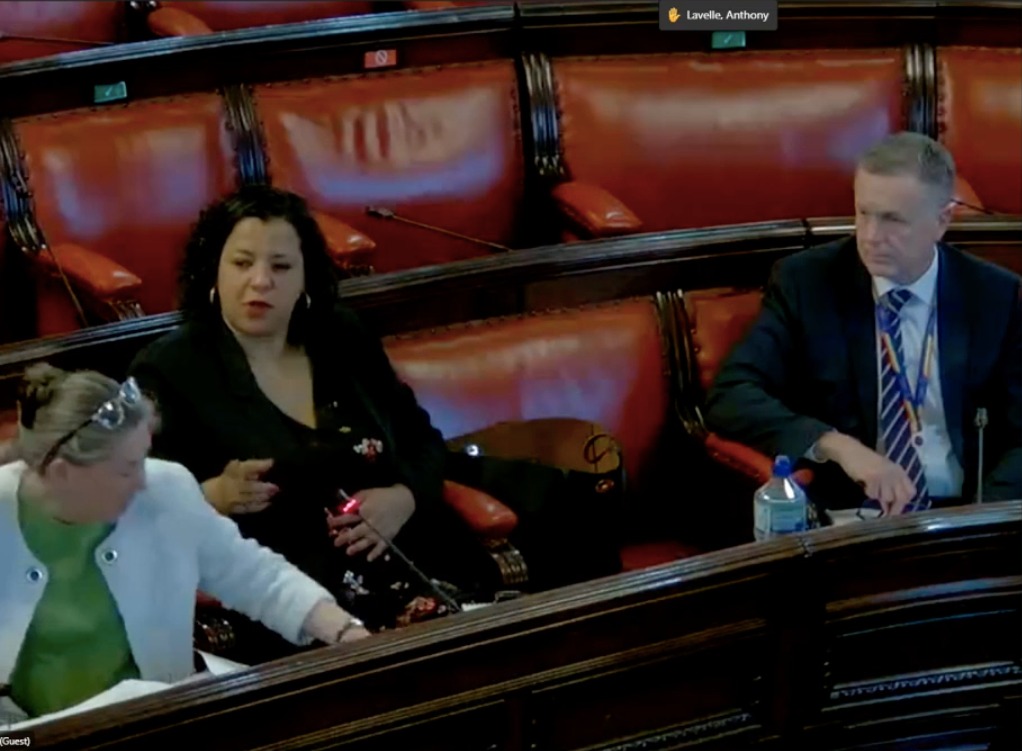Tony Reeves was hailed as the saviour of Liverpool. So why did he quit?

After the council’s chief executive resigns, a dozen sources tell The Post what happened and ask where the city goes next
By Jack Walton and Mollie Simpson
The beginning of the end for Tony Reeves’ tenure as chief executive of Liverpool City Council came when he met with lead government commissioner Mike Cunningham back in March. Tipped off by a whistleblower, Cunningham had been looking through the council’s recent budget. Staring back at him was a £16 million black hole. Reeves was asked in plain terms to explain the situation. His response was said to be less than reassuring: What black hole?
The irony of Cunningham’s discovery (about the costly failure to renew an energy contract on time) was that finance isn’t strictly within his remit. That likely won’t be the case for much longer. The latest report sent to the government by the commissioners is expected to recommend an expansion of their powers, including into finance, which would have further diminished Reeves’ authority.
Too proud to be chucked overboard, he seems to have walked the plank. Reeves resigned as chief executive this week after four years, saying in a statement that while he was “immensely proud” of his achievements in the position, “huge challenges remain”.
Reeves is 57 and had previously served as chief executive of Bradford Council, before working for the giant consultancy firm Deloitte. A source outside the council who knows him well paints an essentially positive picture. Reeves is a “good guy”, the source says, and “stuck his neck out to work with the police and root out poor management”. Meanwhile, opinions expressed to The Post by councillors run the full gamut: from “friendly, down to earth chap” to “mafioso man”.

When he first turned up in 2018 (initially on a lucrative £177,000 four month consultancy role) Reeves was seen as the much needed new broom. Allies of then-mayor Joe Anderson felt nothing so dramatic was necessary, and then after the bombshell of Anderson’s arrest in Operation Aloft on suspicion of witness intimidation and bribery, their opinions of him became more conspiratorial. Liberal Democrat councillor Kris Brown, who chairs the audit committee, believes there’s a bit of “haha, you got yours,” from those close to Anderson now revelling in Reeves’ departure.
The question of how much Reeves did or didn’t know about the energy contract fiasco remains unanswered. At a brutal finance meeting in May, Labour councillor and chair of the Finance and Resources Committee Barry Kushner described his leadership as “passive”. At that meeting it came to light that Reeves' own officers had originally told him the energy situation wasn’t a major incident. “He was describing things happening in the council as though he was sitting around waiting for officers to give him information,” Kushner tells The Post.
A report by the accountancy firm Mazars into the situation is due to be released soon. The local investigative journalist Matt O’Donoghue, whose muckraking reporting on Twitter has recently made him a thorn in the council’s side, believes the report may point to senior executives in the council “gambling” on a fall in energy prices, rather than an innocent oversight. If O’Donoghue is right, and so far his suspicions are not confirmed, it would change the picture entirely. “It’s like spread betting,” he told us. “People lose their shirts when they get involved in complicated markets they don’t understand.”
One person we spoke to for this story had recently heard from a senior council executive who complained that there is more bullying and intimidation now than before the commissioners were brought in. Such a climate has prompted nervousness among lower-down officials, making mistakes and oversights more likely, the executive said. Alfie Hincks of the Liverpool Community Independents (LCI) takes it further, likening Reeves to a “don” crazed by power. “He rules by fear and intimidation,” Hincks says, claiming that some officials have left the council because they were frightened of their boss. Hincks said he would direct us to one of these officers, but we never heard back.
Brown is more charitable, pointing to systemic issues that go way beyond the chief executive. He describes a “really lax and blasé attitude” towards due diligence that set its roots deep in the council — like some Japanese knotweed — long before Reeves. “It won’t just take a new team to sweep it away like the morning mist,” he tells The Post. After all, one man can’t have eyes on everything. On the flip side, Brown does note that his team flagged issues over contracts multiple times and were only paid lip service. LCI leader Anna Rothery paints a similar picture, accusing Reeves of “feign[ing] interest” in conversations.

“A bit of a bullshitter,” was how one very well connected source outside of the council described Reeves to The Post in March. “I thought he talked a good fight and didn't deliver.” Support for that view might be found in an interesting discrepancy between a report written in 2018 by the Local Government Association (LGA), for which Reeves was interviewed and which praised the council glowingly, and the infamous Caller report in 2020, which tore the building’s culture to shreds and was widely assumed to reflect the chief executive’s views.
Anyone who has so much as leafed through the Caller report would notice more than a slight tonal difference. The cynical take would be that Reeves happily lavished praise upon the council when it was politically convenient to do so in order to get the chief executive job on a permanent basis, but then changed tact dramatically once in office to knife Anderson. Someone who worked on the LGA report agrees with this reading of what happened. “I told Max Caller he had had the wool pulled over his eyes by Tony. He is such a blagger,” the source tells The Post. They now believe they were prevented from getting to the truth in 2018 as the council managed the situation in a military-like manner.
O’Donoghue — who noticed the difference between the reports — poses the question: “why is he economical with the truth with the LGA and then brutal with Caller?” A more innocent explanation might be that Reeves was simply a people pleaser, happy to say what was necessary to appease whoever was sitting across the interview room. It is also worth noting that Reeves was fairly new to the council when the LGA report was carried out and may not have had the full picture.
The trouble came when the Conservative government sent in the commissioners last year and Reeves refused to accept that his powers were now much more limited. “He failed to understand the nature of the transaction,” the source who knows him outside of the council says. By this account, Reeves was too proud to see his wings clipped (“you don't get to be a chief exec in local government without having a big ego”) and took positions that created antagonism with the commissioners from day one. “You either work with them, or you pay the price,” says the source.

Listening to then-secretary of state for Housing and Communities and Local Government Robert Jenrick address parliament following Caller’s report was like hearing the description of a Hollywood crime drama in which one do-gooder cop fights relentlessly for justice in a world blighted by conniving villains. Reeves was commended by Jenrick for taking “positive remedial steps” in an otherwise brutal statement. He was a light in the darkness.
Reeves himself played down this praise. In an interview with the Local Government Chronicle in March 2021, he spoke about a team of people who were already taking hold of the longstanding issues and moving the council forward. He added: “You won't find us crawling into a corner licking our wounds. We will not let these problems define us as a council or the city, that would be completely unfair.”
“I think it's really sad,” says someone who has had dealings with Reeves. “He's not the greatest administrator in human history, but the fact that Liverpool has managed to spit him out, it doesn't reflect well on anyone. Tony or Liverpool.” The suggestion is a rather bleak one: that deep cultural issues are set into the city’s politics and that without addressing the system, the players within it will continue to fall short.
Professor Michael Parkinson — a regeneration expert who knows everyone in the city’s politics and lectures at the University of Liverpool — believes “the solution has now become the problem”. The team of commissioners parachuted in by the central government to rescue a failing council have, in essence, been dragged into the conflict.

Parkinson’s hope is that Greg Clark — the new levelling up minister — will be able to finally engender a “grown up discussion” about the city’s leadership and prevent political difficulties blurring into economic ones. Clark is something of a “wet Tory” to borrow the parlance of the Thatcher years, meaning closer to the political centre than some of his colleagues. He even joined forces with Joe Anderson back in 2012 to represent the UK at the New Cities Summit in Paris.
It is thought that the council’s senior management will now act as a surrogate chief executive in the interim period. In any case, there is a sense from many people we spoke to that Reeves’ departure cranks up the pressure on the commissioners to deliver the goods. “Ok, your man has gone, partly because of you, this is on you now,” says one source. Unfortunately, little love for them remains. “I can’t say after 13 months of them being here that they’ve made a positive impression at all,” says Lib Dem leader Richard Kemp, who used to speak more highly of them.
Reeves' plot arc during his period in Liverpool was a classic rise and fall. Just 15 months elapsed between Jenrick’s generous words in the Commons and the humbling of the chief executive at May’s finance meeting. That night, a tired-looking and humiliated Reeves appeared less like the stoic seafarer guiding his crew through stormy waters and more like a naughty cadet who had accidentally bumped into the emergency alarms while looking for his sandwiches. Now it’s the commissioners at the tiller, in charge of keeping City Council from going headlong into the rocks.
The article has been ammended to clarify more clearly that Reeves was relatively new to the job when the LGA report was written.

Comments
Latest
Cuts, care and council tax hikes: how the city is balancing its books
A postcard from Colwyn Bay
Fountains, Ffrith and turning the place over
Just what is happening with Peak Cluster’s CO₂ pipeline?
Tony Reeves was hailed as the saviour of Liverpool. So why did he quit?
After the council’s chief executive resigns, a dozen sources tell The Post what happened and ask where the city goes next